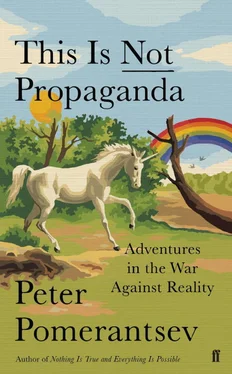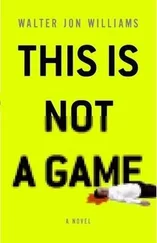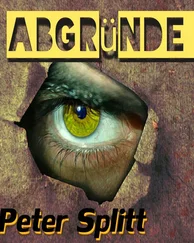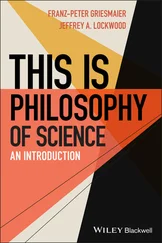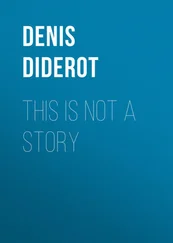At first he hadn’t told his parents about his filming; they would have thought it dangerous. But when he came home one time caked in dust, after nearly being caught in a bomb attack, he couldn’t hide it any more. His father was furious initially. Then, when Khaled explained to him how they were pulling people out of the rubble, how his footage was appearing on international TV channels, relating Aleppo to the whole world, his father relented. Shots of children being pulled miraculously out of the wreckage were particularly popular (there were many more they couldn’t save, but that footage didn’t always go so viral).
Life in the city became guided by sound: a hiss, pause and then rumbling and an expanding explosion meant barrel bombs; a spluttering sound signified rockets. Khaled would listen for them in the background as he watched the 2014 World Cup finals. He wanted Germany to win. He would watch his favourite player, Mesut Özil, ghost into the penalty area, then hear the hiss or splutter and run out to film the damage. He always had to be careful about a ‘double tap’: when a helicopter drops one bomb, waits for a crowd to gather, then drops another.
When the rescue services, led by former school teacher Ammar Al-Selmo, arrived after an attack, people would react differently. Some of the survivors would rush towards Khaled’s camera lens, right up close, and start crying, ‘Why are they bombing us? There are no soldiers here’; or demanding justice; or saying it was their neighbour’s fault, the one who’d joined the revolution – ‘The bombs had been meant for him, not me!’
Khaled got used to the sight of slaughter. At first much of what he shot was out of focus; he waved the camera around too much, chasing the action around him, when what was needed was to make a mental map of the surroundings first, then choose what to capture. He had to start breaking reality down into separate shots that together told a story: corpses in the rubble; craters; the remains of toys and clothes; photographs on the collapsed walls – any details proving civilians had been bombed. The dust from the destroyed buildings was a permanent problem, misting over the lens, clogging up the mechanics. [17]
In 2015 Russia entered the war on Assad’s side. The Soviet Union had propped up his father, Hafez. Now Russia was rescuing his son. For the first time since the end of the Cold War the country was back on the biggest stage of global politics. Putin’s domestic image is founded on the idea that there is no alternative to his rule, that he is immense. Now he was showing he was supreme not just at home, but in the Middle East. When Russia joined, Assad controlled only 20 per cent of his own country. The stated aim of the Russian campaign was to help defeat Islamist terrorists. Instead, the Russian air force turned its attention to crushing any resistance to Assad’s rule, and Aleppo in particular.
The siege intensified in April 2016. [18]Supplies to eastern Aleppo were cut off. Barrel and cluster bombs crashed down on bakeries, markets, schools. Over 4,000 barrel bombs would fall in 2016. [19]The work of the White Helmets became ever more relentless. One morning they pulled a man out of the rubble of his home and took him to Al-Bayan hospital; when a bomb landed in the vicinity of the hospital it was evacuated, and the man was taken to a suburb that was subsequently bombed in the evening. The same rescuers who had pulled him out in the morning now came to rescue him again. He began screaming at them to go away – they brought him nothing but ill. He had lost his wife and child in the morning’s bombing.
When the European Football Championship came round in the summer of 2016, Khaled was too busy to pay attention to how Özil was doing. Hospitals were being targeted repeatedly to break the will of the resistance; doctors had to operate underground, in semi-darkness. Tens of thousands fled. [20]
Increasingly people just sighed when they saw Khaled’s camera: what was the point of all this filming?
*
Mary Ana McGlasson was in Starbucks. She was an American nurse and ran humanitarian medical aid for Syria, based in the Turkish border town of Gaziantep, a city of one million, where an extra 500,000 Syrians had arrived as refugees. Working first for Relief International, then for Doctors Without Borders, she had spent the last five years coordinating the construction of hospitals that would then be destroyed again. She had just managed to get six months’ worth of medical supplies into Aleppo, but as the siege intensified over the summer of 2016 it became clear that was not going to be enough. As she sat in Starbucks she was getting live text and WhatsApp messages from doctors inside Aleppo: ‘The bombings have started again… we are operating in the basement… the generator has gone. We are operating by the lights from our mobile phones.’
Her job as a humanitarian worker was to be neutral. To build hospitals, deliver supplies, report on fatalities and war crimes. She relied on there being, beyond her, a system of international norms, ideals, institutions to which she provided the necessary evidence.
After 2015, as Russia began its bombing, Mary Ana and dozens of other humanitarian organisations compiled report after report showing that the attacks were aimed not, as the Russians claimed, at areas held by ISIS, but at Aleppo itself. She still assumed the weight of evidence would mean something. She wrote letters to US congressmen and UN representatives. She had long given up thinking there would be military intervention, even a safe zone – that moment had passed when the Russians began bombing – but at least more sanctions, an outcry, last-ditch negotiations… Or, more importantly, millions in the streets, protests… Where were they? She knew the politicians would react only if they saw people were upset. Did it not matter any more if a regime gassed its own people? Did that elicit just a shrug?
The WhatsApp messages from Aleppo kept on coming through: ‘We have run out of gauze and bandages. The bombs are getting closer.’
She struggled to look Syrians in the eye. They kept coming to her, thinking she had some sort of influence, planting hard drives of evidence in her hands. ‘We have been killed by barrel bombs,’ they told her. ‘We have been killed by sarin gas and by Sukhoi rockets. But what is killing us now is the silence.’
At one moment in May 2016, there was hope: the Security Council of the UN, which included a representative from the Russian Federation, passed a resolution calling for a halt to the bombing of medical centres in Syria. It seemed, suddenly, that all their frenetic report writing had not been entirely in vain.
The resolution was passed on 3 May [21] – but in the following months attacks on medical facilities in Syria increased by 89 per cent. There were 172 attacks between June and December – one every twenty-nine hours. [22]
The medics’ messages from Aleppo flashed on her phone: ‘Paediatric hospital was targeted today by aircraft. Many fatalities and injuries.’
As the fall of Aleppo became ever more inevitable, Mary Ana’s Syrian employees started asking for a month’s pay in advance. She knew what that meant: they had given up any hope of ever going home, were prepared to risk everything on a boat taking them across the Mediterranean to Greece, and from there on the long march through the Balkans to Europe. There were different prices: if you had $10,000 or so, smugglers could take you in a luxury yacht that dropped you on a pleasant beach in the Peloponnese; sometimes as little as a few hundred could get you on a very overcrowded dinghy.
The Syrians she knew in Gaziantep had always thought they would go home. There was the doctor who walked around Gaziantep with the keys to his Aleppo apartment in his pocket, as if expecting to return there at any moment, though he had been away for years. Other refugees in Gaziantep lived in squalor, middle-class families squatting in empty shipping containers, eking out a living cutting shoe leather for local factories, but even they had not moved on from the border town, in the expectation that their time away from home was temporary. Now, with the final bombardment, they were abandoning all hope.
Читать дальше
